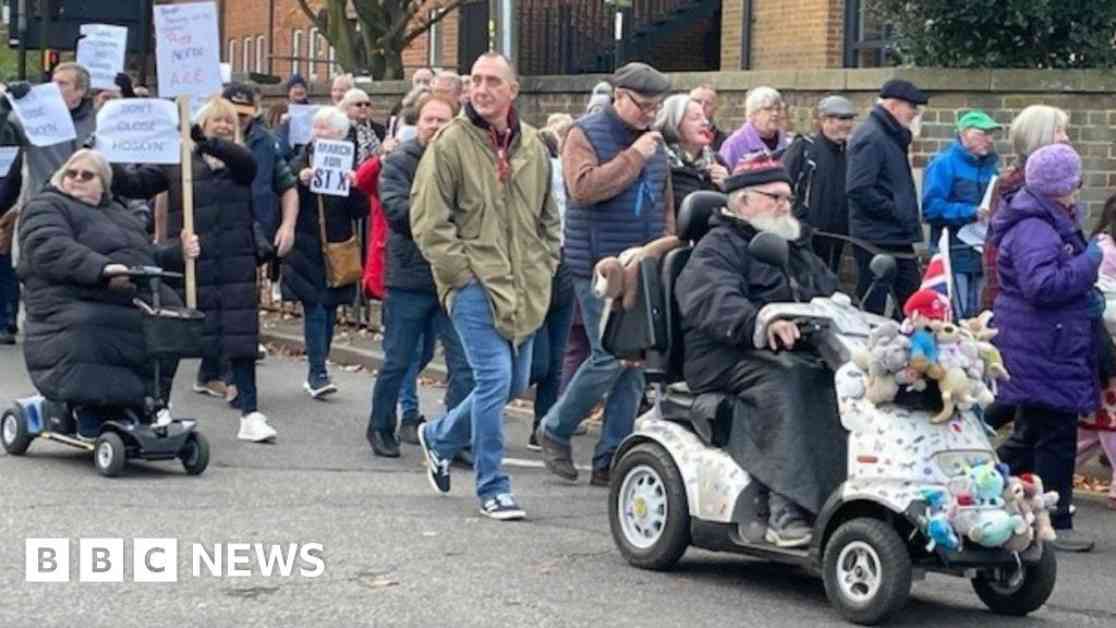A second protest took place in Rugby, with over 400 people marching against the planned closure of a hospital ward. The Hospital of St. Cross’s Hoskyn Ward, which makes up 25 out of 110 beds on the site, is scheduled to close on December 4th. This decision has sparked outrage in the community, as many believe the ward is essential for providing care to elderly residents.
The closure of the ward comes more than a decade after the hospital lost its A&E department, leaving residents concerned about access to emergency care. Currently, the urgent treatment center is nurse-led, forcing patients to travel over 10 miles to Coventry’s University Hospital. This lack of local emergency care services is one of the main issues driving the protests.
During the demonstration, protesters voiced their frustrations, with one individual expressing their personal connection to the ward. Robin Lightfoot shared, “We’ve already got a lot of elderly residents in Rugby, so why are we shutting down the… ward when it’s one of the most needed wards and it does a lot of good.” This sentiment was echoed by former nurse Michelle Mitchell, who emphasized the importance of having adequate staff to provide quality care.
The University Hospitals Coventry and Warwickshire NHS Trust defended the decision, citing a decrease in patient transfers from Coventry as a reason for the closure. Trust chief executive Prof Andy Hardy explained that a review determined the hospital no longer required the current number of inpatient beds. He highlighted recent investments in new facilities at the site and plans to build a new ward and theater block in 2026, pending approval.
Despite the trust’s rationale, the community remains steadfast in their opposition to the closure of the Hoskyn Ward. Residents are concerned about the impact this decision will have on the quality of care available to elderly patients in the area. The protests reflect a deep-rooted sense of community solidarity and advocacy for accessible healthcare services.
As the debate continues, it is clear that the closure of the ward is a contentious issue that has mobilized the community to stand up for their healthcare needs. The ongoing protests serve as a reminder of the importance of listening to the voices of the people most directly affected by healthcare decisions and working together to find solutions that prioritize patient care and well-being.
